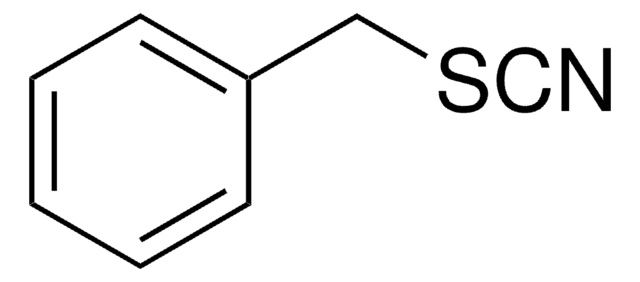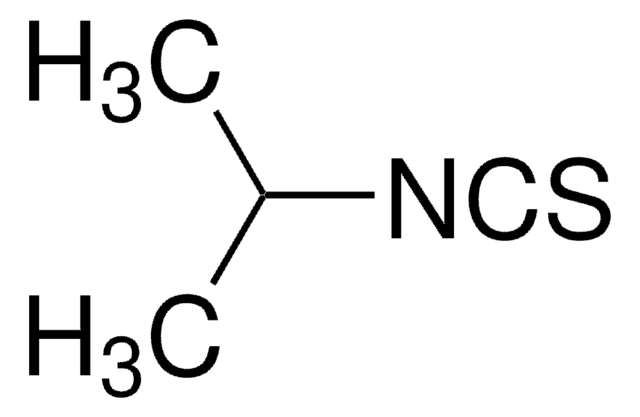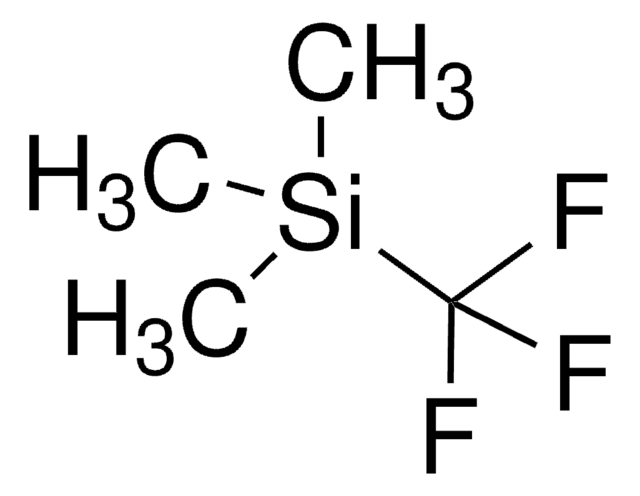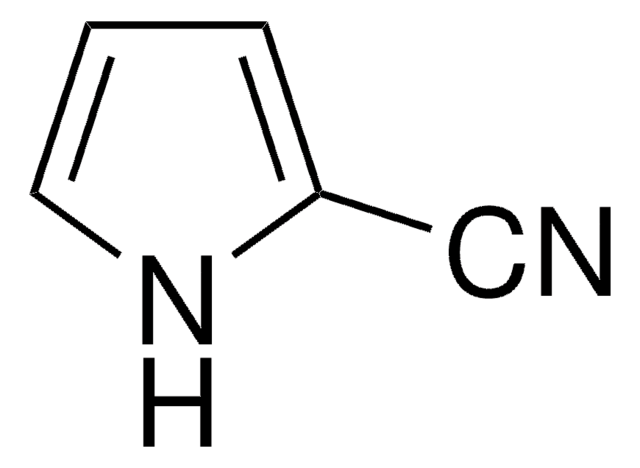722197
Methyl thiocyanate
97%
Sinónimos:
Thiocyanic acid methyl ester
About This Item
Productos recomendados
Nivel de calidad
Ensayo
97%
Formulario
liquid
índice de refracción
n20/D 1.469 (lit.)
densidad
1.052 g/mL at 25 °C (lit.)
grupo funcional
thiocyanate
thioether
cadena SMILES
CSC#N
InChI
1S/C2H3NS/c1-4-2-3/h1H3
Clave InChI
VYHVQEYOFIYNJP-UHFFFAOYSA-N
¿Está buscando productos similares? Visita Guía de comparación de productos
Palabra de señalización
Danger
Frases de peligro
Clasificaciones de peligro
Acute Tox. 3 Dermal - Acute Tox. 3 Inhalation - Acute Tox. 3 Oral - Eye Irrit. 2 - Flam. Liq. 3 - STOT SE 3
Órganos de actuación
Respiratory system
Código de clase de almacenamiento
3 - Flammable liquids
Clase de riesgo para el agua (WGK)
WGK 3
Punto de inflamabilidad (°F)
109.9 °F - closed cup
Punto de inflamabilidad (°C)
43.3 °C - closed cup
Elija entre una de las versiones más recientes:
¿Ya tiene este producto?
Encuentre la documentación para los productos que ha comprado recientemente en la Biblioteca de documentos.
Nuestro equipo de científicos tiene experiencia en todas las áreas de investigación: Ciencias de la vida, Ciencia de los materiales, Síntesis química, Cromatografía, Analítica y muchas otras.
Póngase en contacto con el Servicio técnico










